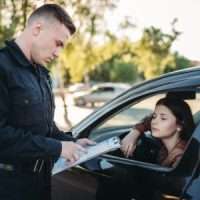What You Should Know About Traffic Crimes In Miami

A major part of the fun of living in Florida is bending the rules of the road. Yes, everyone knows that it is dangerous to drive at 90 miles per hour, but who are you harming if it is 4:00 in the morning, and the only witnesses to your impressive speed are the iguanas in the trees and the alligators in the canal? In South Florida, stop signs are just a suggestion, and red lights are merely red-light district-themed décor. For the price of a bag of weed, you can simply pay your traffic tickets and keep driving. Traffic tickets are not the same thing as having a criminal record. Before you convince yourself that you are unstoppable, though, consider that it is possible to get criminal charges for violations of a number of traffic laws, even when you do not cause an accident or injure anyone. Next month, Florida lawmakers have added another traffic offense to the list of motor vehicle no-nos that can lead to jail time. Here, our Miami criminal defense lawyer explains the various traffic violations categorized as misdemeanors and felonies under Florida law.
Which Illegal Driving Behaviors Count as Crimes?
Almost anyone who has had a driver’s license for more than a few weeks has broken the law, but we are not criminals even in the estimation of people who are eager to label everyone as such. Traffic infractions have their own court system, and traffic court cases count as civil cases. The only possible punishments are monetary fines, much as if a court rules against you in a civil lawsuit. Since you are not at risk of being incarcerated, that is, losing your liberty, like defendants in criminal courts are, the process is simpler; there are no jury trials, and therefore no pretrial discovery process or juror selection.
In the case of traffic violations that cause a substantial risk of serious bodily harm, though, you can get criminal charges. These are offenses where you endanger someone more than you would by changing lanes without using your turn signal or parking in a fire lane. Traffic crimes that create a substantial risk of physical injury but do not cause physical injury tend to be misdemeanors. These are some examples of misdemeanor traffic crimes in Florida:
- Drunk driving without causing an accident and without prior DUI convictions
- Reckless driving
- Leaving the scene of an accident with property damage only
- Knowingly driving without a suspended license
Once bodily harm enters the picture, you can get felony charges. It is a felony, for example, to cause an accident with bodily injuries while drunk or to leave the scene of an accident where people got injured.
Dangerous Excessive Speed, Florida’s Newest Traffic Crime
Starting in July 2025, there is a new law on the books that codifies the criminal offense of dangerous excessive speed. HB351 defines dangerous excessive speed as driving 50 miles per hour above the speed limit or driving at least 100 miles per hour. This means that you can get charged with dangerous excessive speed if you drive 75 miles per hour on a road where the speed limit is 25 miles per hour. Meanwhile, on some parts of I-95, the speed limit is 70 miles per hour, and even you are not brave enough to try to find out whether your car can go 120 miles per hour. Once you crack 100 miles per hour, though, you can get charged with dangerous excessive speed, even though you only exceeded the speed limit by 30 miles per hour.
Dangerous excessive speed is a misdemeanor. For a first offense conviction, the maximum penalty is a $500 fine and 30 days in jail. For a subsequent conviction, it is a $1,000 fine and 90 days in jail. If your second dangerous excessive speed conviction happens within five years of your first, the court can also suspend your driver’s license for up to a year, with the minimum suspension period being 180 days.
Why Do So Many Defendants Plead No Contest to Traffic Offenses?
With traffic-related offenses, as with other crimes, the penalties are usually less if you plead guilty rather than getting convicted at trial. If you plead no contest, you get the same sentence as you would for a guilty plea. The difference is that, if someone sues you in civil court in connection with a traffic offense, your guilty plea means an automatic ruling in favor of the plaintiff, whereas your no contest plea does not.
Contact Our Criminal Defense Attorneys
A South Florida criminal defense lawyer can help you defend yourself against criminal charges for traffic crimes. Contact Ratzan & Faccidomo in Miami, Florida for a confidential consultation about your case.
Sources:
miamidadeclerk.gov/clerk/criminal-traffic-violations.page
flvoicenews.com/florida-drivers-face-new-speeding-law-that-takes-effect-this-summer/
